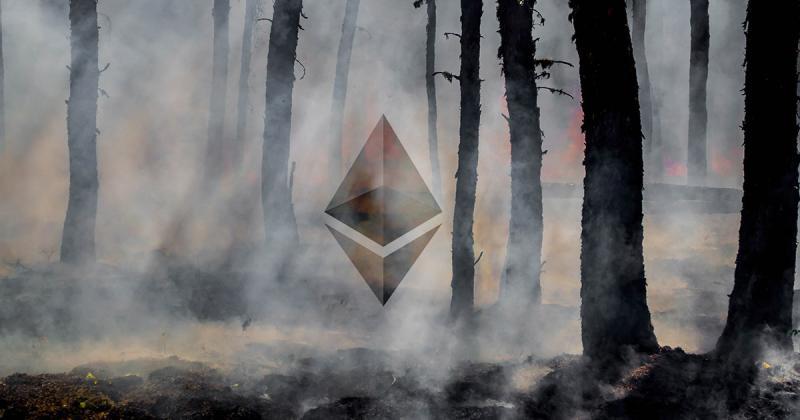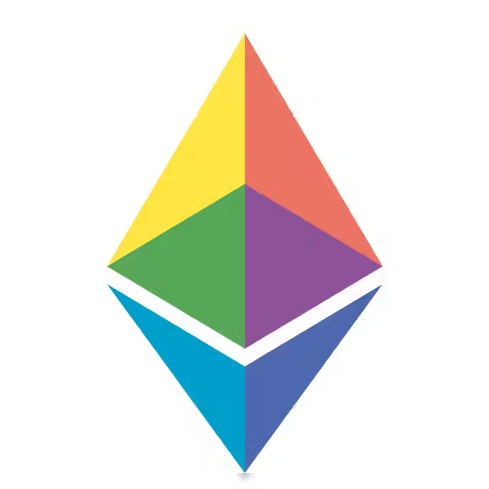Working extra hours to earn more money, Ethereum researchers are "restaking" themselves
Author: Alex Liu, Foresight News
"The Ethereum Foundation has over 300 people, and the fact that only a few of them serve as advisors to the Eigen Foundation will not affect its neutrality." This sounds reasonable, unless those "few" include Dankrad Feist and Justin Drake.
Recently, several researchers from the Ethereum Foundation have publicly disclosed that they have accepted advisory positions with Eigen Foundation, the entity behind the restaking protocol EigenLayer, and will receive valuable EIGEN tokens. This has sparked significant controversy and intense discussion within the community. The author believes that delving into the ins and outs of this incident can help everyone understand the dilemmas faced by Ethereum developers and the community at the level of "social consensus."
Background: The Ethereum Community is Arguing
As influential developers and opinion leaders like Vitalik have shifted their focus to Farcaster, the Ethereum community, lacking a representative figure like Solana's Mert who can continuously generate buzz through opinions and debates, has been relatively "quiet" for some time. But now, the calm has finally been broken—Péter Szilágyi, the lead developer of the main Ethereum execution client Geth, and Dankrad Feist, a core member of the Ethereum Foundation, have gotten into a dispute.
The argument primarily revolves around MEV and development progress, with Péter expressing dissatisfaction with the current state of Ethereum development. Regarding MEV, Peter believes it is essentially an attack on Ethereum, but by sharing profits with stakeholders, the issue is no longer a problem.
This reflects a challenge outside of development: as the protocol scales and becomes more decentralized, the number of participants, or stakeholders, will increase. How should the interests of all parties be coordinated and balanced?
Ultimately, Vitalik joined the discussion by posting on X.
Main Topic: Potential Conflicts of Interest Spark Controversy
Vitalik subsequently praised the Ethereum community's "open discussion." However, in a thread on this topic, legendary crypto influencer Cobie replied to him, "What do you think about core developers or researchers from the Ethereum Foundation receiving life-changing compensation and becoming advisors from projects built on Ethereum? And these projects may have conflicts of interest with Ethereum now or in the future, for example—of course purely theoretically—let's assume it's EigenLayer."

Cobie clearly knows some inside information and did not mention EigenLayer casually. Because shortly after he posted his inquiry, core researcher Justin Drake from the Ethereum Foundation published a lengthy post on X disclosing that he would become an advisor to Eigen Foundation and receive millions of dollars in token incentives, "worth more than the total of all his other personal assets."

Why has this incident sparked such significant controversy? Can one person hold positions at multiple organizations simultaneously? The answer is: yes. But what if the entities involved might have conflicts of interest? Things become complicated.
Restaking, which refers to re-staking or re-delegating, is generally considered to introduce additional risks at the protocol level for Ethereum. In simple terms, it may not necessarily benefit Ethereum and could even lead to potential conflicts of interest—for example, additional slashing when providing security guarantees to third parties, which in the worst-case scenario could lead users who lose assets to attempt to fork Ethereum.
A straightforward explanation of Restaking is allowing one asset to work multiple jobs to earn multiple returns. From this perspective, these Ethereum researchers seem to also be "restaking" themselves, trying to take on multiple roles. Restaking is risky; working for someone could lead to being backstabbed by the boss. (If the company is unreliable, the principal could be "slashed" and forfeited.)
Although these researchers claim that their advisory roles are personal and do not represent the Ethereum Foundation, they can hold dissenting views on EigenLayer and are prepared to end their advisory positions at any time if EigenLayer takes actions contrary to Ethereum's interests. But as a community member poignantly asked,
"Do you really think receiving substantial compensation from an organization with different incentives than Ethereum won't affect your decision-making?" Would a researcher holding an advisory role in a stakeholder project influence the Ethereum Foundation's neutrality?
As stated at the beginning of the article: "The Ethereum Foundation has over 300 people, and the fact that only a few of them serve as advisors to the Eigen Foundation will not affect its neutrality." This sounds reasonable, unless those "few" include Dankrad Feist and Justin Drake. Because Dankrad Feist and Justin Drake are individuals who can significantly influence the direction of Ethereum—Justin Drake plays a crucial role in the layout of Ethereum 2.0, and this year, aside from the ETF, the biggest narrative for Ethereum is the Cancun upgrade, which implements proto-danksharding and lays the groundwork for achieving true danksharding in the future. Indeed, the scaling solution ultimately chosen for the Ethereum mainnet was proposed by Dankrad Feist and named after him.
Such individuals will receive millions of dollars in EIGEN tokens to critique EigenLayer. Whether the Eigen Foundation is doing charity for the public good is for everyone to judge.
Later, Péter Szilágyi and Dankrad Feist had another argument, with Péter asking, "So who decides what is necessary for the protocol and what is not?" Dankrad replied, "Clearly, I do."
Then Péter Szilágyi sarcastically remarked, "I thought it was EigenLayer, my mistake."
Dankrad did not respond further.

Analysis: EigenLayer Exchanges Tokens for Allies
We have no evidence to prove that EigenLayer's offer of so many tokens to recruit "advisors" has a specific purpose, but we can observe an interesting fact.
Ten months ago, Bankless released a podcast themed "Restaking Alignment." In it, seven individuals, most of whom held a relatively negative attitude towards restaking (including Justin Drake and Dankrad).
Now, the six individuals in the image below hold stakes in EigenLayer (through angel investments, advisory positions, or employment), and the seventh person from the podcast is Vitalik.

In this regard, Sreeram may be the most outstanding ever.
Reflection: Better and More Transparent Information Disclosure
The Ethereum Foundation is essentially a non-profit organization. In the crypto industry, such foundations are generally more opaque compared to traditional companies or foundations, lacking basic information disclosure. This incident has exposed this issue, and community members have raised related concerns, with some pointing out:
Compared to individual employees not disclosing investments, I have a bigger problem with the overall existence of the Ethereum Foundation. For years, the Ethereum Foundation should have disclosed financial reports, organizational charts, and other information. A well-managed organization would require its employees to disclose.

In the current trust crisis, the Ethereum Foundation should make improvements to provide better and more transparent information disclosure. Otherwise, discussions have already begun about whether "the Ethereum Foundation should be dissolved?"
Implications: Social Consensus and Decentralization
Looking back at the incident, it essentially reflects a trust crisis faced by individuals and organizations within the Ethereum Foundation. Community members doubt their neutrality and fear that they may lead Ethereum in the wrong direction due to personal interests.
In the author's view, this is actually a good thing. Different groups have different interests, leading to divergence, and an Ethereum that progresses through debate will clearly be more decentralized at the level of social consensus than an Ethereum that is "tightly united" around the Ethereum Foundation. Questioning leads to reflection and progress.
Decentralization solely at the technical and code level is not enough. We should pay attention to the decentralization at the level of social consensus. Imagine if the whole world had only one decentralized computer; wouldn't that count as a form of centralization?
Ethereum is a pioneer of smart contract platforms, but it also carries the burden of history, such as the not-so-advanced EVM. Its current choice of a modular architecture, with a roadmap centered around Rollups, aims to use the mainnet as a foundation, allowing teams with differing opinions to progress through debate and build their own "decentralized computer" solutions, collectively achieving a better decentralized future.




























